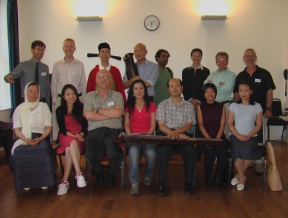

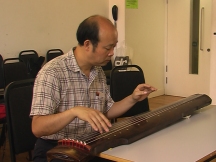 |
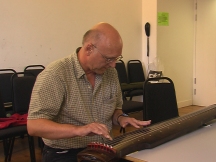 |
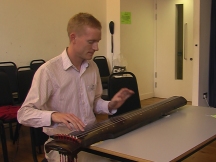 |
| Zeng Chengwei playing Gu Guan Yu Shen |
Jim
Binkley playing Qing Shan Ye Yu |
Joshua
Wickerham playing Jiu
Kuang |
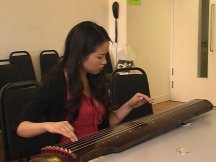 |
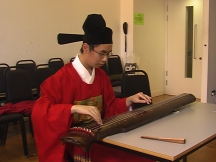 |
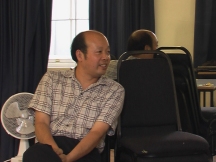 |
| Jenny Zhao playing Yi Guren |
Charlie Huang playing Ping Sha Luo Yan |
Zeng
Chengwei discussing the Shu style |
Copyright the London Youlan Qin Society, 2007. All
rights reserved.